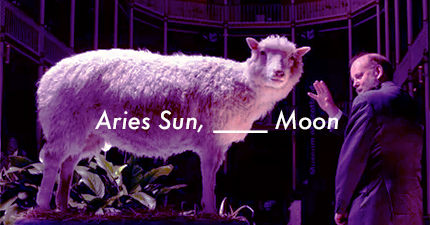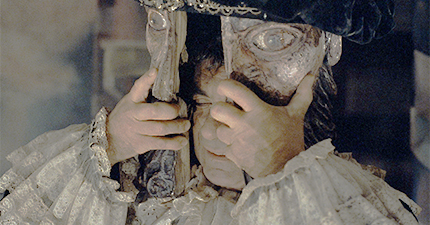I had a conversation with a friend who is looking to start astrology practice in terms of client work and while I definitely don’t know everything and don’t do everything perfectly or well, I do feel like the last five years of counseling work has taught me some things. I decided to write this article for people who are also looking to start doing client work.
Client work can be a little scary. There can be feelings of imposter syndrome, of not having your own shit together enough to be counseling others especially before you build your own counseling framework, and you might have no idea how to differentiate between emotional labor and counseling.
Don’t rely on delineations
Honestly, people are very complicated creatures. You will never know a client fully just in an hour or hour and half session. You will not be able to talk about the whole chart unless your reading style is just you delineating the chart for the entire session. I don’t recommend this style. It’s very draining and you miss out on the chance to learn with the client while working collaboratively on interpreting their chart with them.
Delineations, in my book, are good for one thing and one thing only. They’re good for people who are just starting to learn about astrology in general or about a certain technique and want to have some fun applying that technique to their own chart. When you’re applying a delineation to your own chart, you know exactly how the delineation resonates or doesn’t resonate.
When you read a chart in a way that relies on delineations, such as saying “Mercury in Leo is about creative communications,” you flatten the interpretation no matter how detailed, how poetic, how cool you make the delineation because you miss out on hearing about the client’s life. It’s much better to say, in my experience, “Mercury can be about language or labor. You’re going through a transit to Mercury right now. How does language or labor show up in your life and have you noticed any changes?”
Not using delineations means that you can talk about a lot of things that you wouldn’t be able to talk about through delineations. When you do delineations, the framework is already prescriptive. This puts a lot of responsibility on your job as an astrologer when talking about gender, race, class, or other social concerns and no astrologer knows everything. For example, you can’t talk about gender in a prescriptive framework no matter how woke you are about gender. You have to ask the client about their experiences with gender, about how gender was actually messaged to them, and about how gender has changed for them throughout their life. For example, it shouldn’t be your responsibility to provide an interpretation of Venus in Aries that’s somehow healing in terms of femme-ness or fetishization. Only the client knows how to heal that part of themselves. Your only job is to find the right questions.
Reflect the client’s words back to them
This is a common counseling tool that’s very, very useful. People don’t go to counseling because they expect a counselor to solve their problems. People go to counseling because they feel like they’re ready to solve their own problems. What a counselor provides over anything else is just another perspective.
Reflecting words back by rephrasing what you heard the client say is good for two things. It’s good to make sure that you’re perceiving the client in the way that they mean and it’s also good for you to reframe some things that you’re hearing from an outside perspective.
For example, if your client says “I can’t talk to my friend about this issue because my mom was the same way and talking to her never ended well,” you can reflect their words back and say something like: “I’m hearing you associate the conflict with your friend with older conflicts with your mom. It sounds like conversations with her when you were a child with little power in the relationship didn’t go well and like you’re anticipating the conversation with your friend to also be a place where you are powerless. Does that sound right?”
You can also apply the chart in the reflection. You can tell a client that something they said reminded you of a certain placement when it does. You can bring up connections in real time as they occur while listening. When you do this, you actually don’t need to do a lot of prep work for a session since you are working in real time.
It’s also important that you don’t give advice during the reflection of words. In the example above, notice that you’re only commenting on an association and putting it under a new light, which is an analysis of a power dynamic. You should not give advice because you don’t know your client’s life. In the example above, you don’t know whether the friend will perpetuate the same power dynamics as the mother. You can point out the expectation but only your client will know whether the expectation is founded or not.
Always look at your own chart with that of your client
This is a big one that, in the beginning, I didn’t really understand. I’d heard it before from more experienced astrological counselors but I always thought that the session was about the client and not about me. I didn’t see the point of looking at the synastry between the client and reader at all and considered it sort of self centering.
Now, I totally get it. The synastry reveals so much and should be considered before any session. Your synastry with a client will show you so much in terms of why a person might have come to you. Looking at the synastry actually shows you your limits. You are a subjective person with a subjective perspective. The way your chart fits with your client’s always impacts the session.
Now, I wouldn’t actually show the synastry chart to the client because that just adds too many layers to the conversation and, chances are, a client isn’t interested in a session where they have to only look at their own chart in relation to the astrologer’s. But keep it in mind. When you look at a client’s chart, keep your own degrees in mind. Make a note of anything that is in close degree to your own placements.
You’re not going to be able to talk about everything with a client and you shouldn’t expect to. For example, you might have a session with someone who has what seems like a really intense Moon—Pluto aspect but that might not even come up in the session. It might not come up because it could be something that the client has already dealt with and is currently not in focus or it could be about something that they don’t want to bring to the session because they’re not ready to work on it. Both of these reasons are fine.
Maybe your Mars conjuncts the client’s Moon. Maybe your client is coming to be challenged on emotionally tough issues and you have the capacity to hurt them if you’re not sensitive. Maybe both of you have Saturn in the eighth house. Maybe they do want to process that Saturn with you even if there’s nothing transiting it. Notice the similarities and understand what you have language for.
Communicate about expectations before the session
Because of the cultural position of astrology, there will be people who go into an astrology session expecting you to use magic somehow to solve their issues. There will also be people who have no idea what to expect. There will be people who have gotten many readings before and expect something similar to what they have already experienced.
You should communicate exactly how you expect the reading to go before you meet with the client. You can have a prewritten blurb that you email to all prospective clients or have something about your process on your website. You should make it known to anyone who is expecting to sit there in silence while you talk about their chart that you require their active participation. You should ask clients to prepare focus points, goals, or questions. I have an intake form that is a Google doc for this purpose. Again, the time set aside for a consultation is very short. The more the both of you can do to prepare, the more you can get done together.
If someone is resistant to your expectations, then you are allowed to say no to the reading. For me, I don’t do readings for anyone who seems like they expect astrology to solve their problems without them putting in work. The reason for that is that I know that I won’t be able to do anything for that person and I’d be essentially charging them for work I cannot do. I also don’t do grief work and I make that clear to anyone who is coming in with grief. This is important because I’m not able to do something I haven’t spent time building on and I can refer people who come with issues that I can’t hold space for.
I know that saying no to clients can feel scary when you’re building a practice. Do it anyway. You need those no’s to sharpen your purpose.
Practice a lot!
The last one is pretty basic. It’s just about practice. You sometimes walk away from readings feeling like you wished you did something differently or like you wished you talked about something that you didn’t in hindsight. Price your services according to your own comfort levels. Don’t price it so high that you feel like you’re under a lot of pressure. Price your readings so that you feel good about what you’re receiving and like you’re comforting delivering a counseling session for someone that you’d pay your own rate for.
Practice reading a lot. Do more readings the more you stumble. That's the own way you're going to be able to developing your own healing framework. Just keep going.


